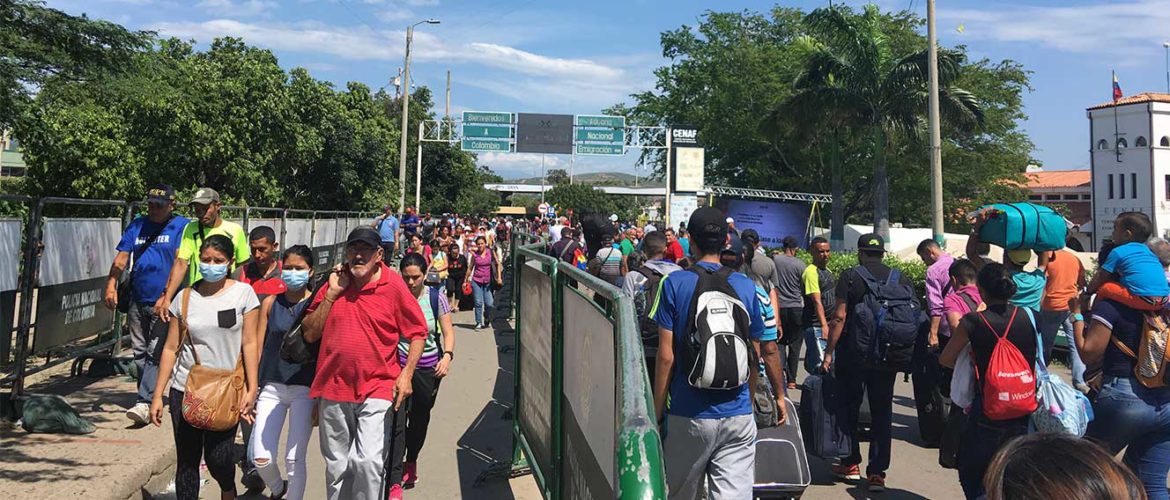Rome, June 21, 2018 – If the XVII, XVIII and XIX centuries were classified, respectively, as Era of Reason, Era of Lights and Era of Revolutions, the Polish sociologist Zygmunt Bauman proposes for the XX century the designation of Era of concentration camps. It refers particularly to the extermination machines of Hitler’s totalitarian regimes, such as Auschwistz; and of Stalin, like Gulag (Cfr Bauman, Zygmunt, La vie en Miettes, expérience postmoderne et moralité, Ed. Pluriel, Paris, 2014, pp. 178-182). It is too well known and notorious how millions of people lost their lives in those antechambers of hell.
But the concentration camps did not end in the year 2000. After almost two decades of the 21st century, it is possible to identify them in different parts of the planet. True, they do not exactly consist of camps prepared for an objective, precise and calculated extermination. Neither do they stop harboring, in precarious and inhumane conditions, millions of human beings without a country. The examples are not lacking: the people of Rohingya origin expelled from Myanmar and refugee in a Bangladeshi camp; those that originate in the Middle East and sub-Saharan Africa, piled up in the camps of Libya; the persecuted ones from the war in Syria, practically detained in camps in Turkey; the Venezuelans who escape the crisis of that country, retained on the border with Colombia or Brazil; Haitians and Hispano-Americans, living with expatriates on the US-Mexico border; Filipinos and Indonesians on the island of Batam, Indonesia, hoping to reach Eldorado from Singapore, and so on.
On the same subject, we can return to the words of the German philosopher Jurgen Habermas in the last decade of the XX century: “Europe must make a great effort to rapidly improve the conditions of the poorest sectors of the population, both in Central and Eastern Europe because the continent will be submerged by a flow of demand for asylum and immigrants “(Cfr.: Habermas, Jurgen, Citizenship and National Union, reflection made at a summit on the future of Europe in April 1992). As you can see, his forecast is more valid than ever.
In the same way as the economy, the migration phenomenon also became globalized. It definitely became global. In addition to the camps mentioned above, there are also millions of migrants, persecuted persons and refugees who continue to wander the roads of the globe. It is due, in part, to the fact that current migrations differ from so-called historical migrations. The latter, during the XIX and early XX century, had a more or less predetermined origin and destination. A new rooting in the new lands of America, Australia or New Zealand compensated the uprooting in the old continent. Today the migrations are done in stages. The homeland is always the starting point, obviously, but the place of arrival is ignored. Each step represents, at the same time, a point of arrival and an attempt at fixation. But the possibility of resuming the road remains open. The point of arrival can become a new starting point.
As a result, the new human displacements are characterized, among other factors, by a repetitive and disorderly sway in the complex chess of world geopolitics. While it is true that birds and seeds migrate on the wings of the wind – as Msgr. J. Scalabrini wrote – it is equally true that migrants do so on the trail of the crumbs and opportunities offered by an increasingly globalized economy. On the other hand, with the increasing difficulty of obtaining documents for a legalized migration, due to the criminalization of human mobility and of migrants, a volcanic eruption is verified in the border territories. These become true pressure cookers ready to explode.
Basically, this “economy that rules out, excludes and kills” – as Pope Francis would say – it allies itself with an extreme right, nothing unusual in the neo-fascist and xenophobic orientation, which discriminates, rejects and rigorously selects those who can enjoy the benefits of technique and progress. The others are condemned to exodus, exile and the diaspora. They have to walk without truce and knock on the doors of minds and hearts increasingly closed and hardened.
Fr. Alfredo J. Gonçalves, cs


